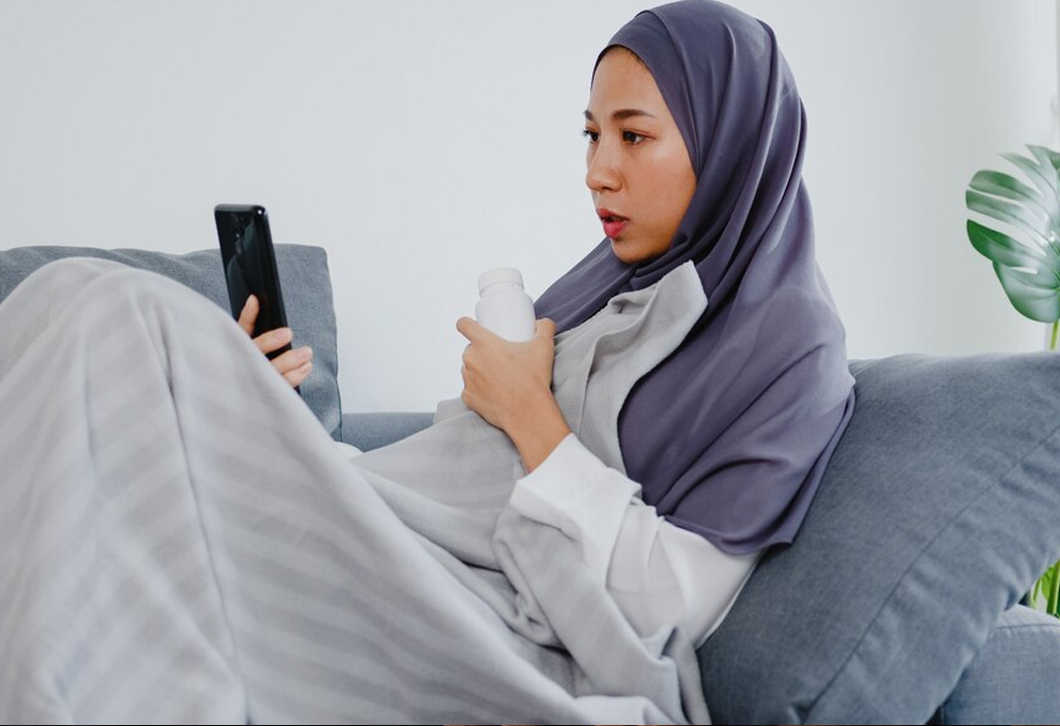Question
Do women have to stay at home during their first menstruation? Or can they go to school, see a doctor, or attend a function, etc?
Bottom Line
Menstruation doesn’t lock women indoors. Islam only restricts specific acts of worship, not daily life.
Quick Answer
Women are not required to stay at home during menstruation. Islam places restrictions only on certain acts of worship, not on education, medical care, or social life. She may continue normal activities and pass through mosques if needed, though staying inside is not allowed.
Key Takeaways
- Menstruation is natural and not a reason for seclusion.
- Restrictions apply only to prayer, fasting, tawaf, and touching the mushaf.
- Cultural confinement practices are not from Islam.
Detailed Answer
Menstruation (hayd) is a natural condition acknowledged in Islam. The Qur’an mentions it only in relation to marital intimacy:
“They ask you about menstruation. Say: It is a discomfort, so keep away from women during menstruation and do not approach them until they are pure. When they have purified themselves, then go to them as Allah has ordained for you.” Quran 2:222
This ruling is limited to marital relations. It does not restrict women from learning, healthcare, or community participation. The Prophet ﷺ confirmed normal social interaction:
“The Prophet ﷺ would recline in my lap while I was menstruating and recite Qur’an.” Sahih al-Bukhari 297
From this, scholars explained that menstruation limits only specific acts of worship like salah. Islam never demanded isolation. Practices of keeping women confined during menstruation come from culture, not religion.
Mosque Ruling
A menstruating woman may not remain in the mosque, but she can pass through if no impurity risk exists. She cannot sit inside for halaqahs or Qur’an recitation, but she may listen from outside, such as via loudspeakers.
What This Means for You
A woman at her first menstruation can attend school, go to the doctor, or join family gatherings as usual. She avoids only prayer, fasting, tawaf, and touching the mushaf until purified. She may pass through mosques if needed and listen to the Qur’an or lessons from outside.
And Allah knows best.
References
Primary Sources
Qur’an
- Al-Baqarah 2:222: Ruling on menstruation and marital intimacy.
Hadith
- Sahih al-Bukhari 297; Sahih Muslim 301: Prophet ﷺ reciting Qur’an while Aisha was menstruating.
- Sahih al-Bukhari 324; Sahih Muslim 890: Menstruating women attending Eid gatherings.
Secondary Sources
- Ibn Qudamah, al-Mughni, vol. 1 – Chapter on menstruation rulings.
- Al-Nawawi, al-Majmu‘ Sharh al-Muhadhdhab, vol. 2 – On menstruating women attending Eid.
- Ibn Taymiyyah, Majmu‘ al-Fatawa, vol. 26 – Menstruation restricts worship, not daily life.
Was this helpful?
Leave Your Comments
© Copyright 2025, All Rights Reserved

